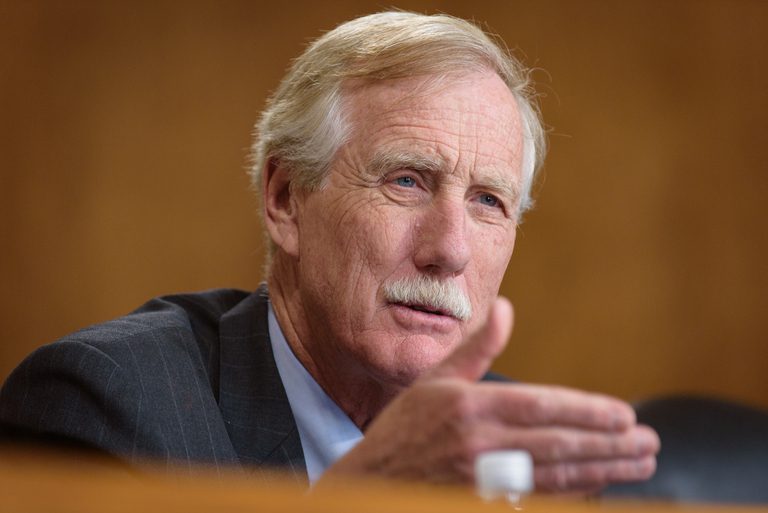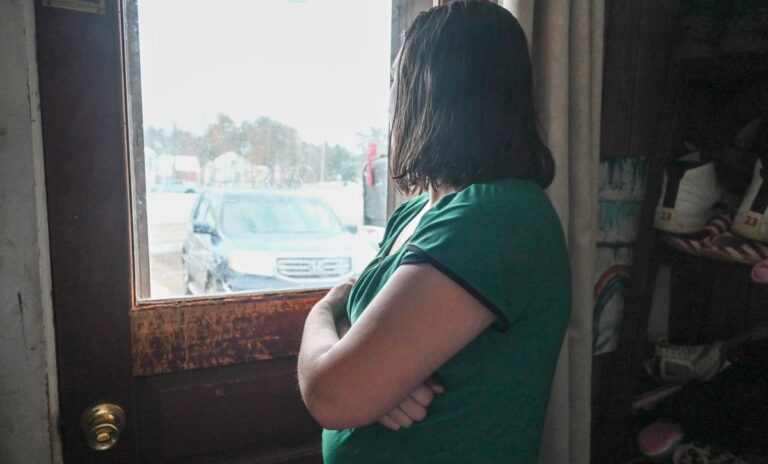Shannon Estenoz
Assistant Secretary for Fish and Wildlife and Parks
Department of Interior
1849 C Street NW Washington, D.C. 20240
Dear Assistant Secretary Estenoz,
We write to express our serious concerns about the recently announced evaluation of land in western Maine, known as the High Peaks Region, for potential designation as a National Wildlife Refuge.
We understand that the process so far has included several scoping sessions to allow constituents to voice their opinions directly to the U.S. Fish and Wildlife Service (USFWS) and that the sentiment expressed in those meetings has made it clear that the overwhelming majority of residents have serious reservations about federal involvement in the region’s land conservation efforts.
In addition, we have received the attached communication from the region’s entire legislative delegation expressing strong opposition to the proposed evaluation. We appreciate the opportunity to share some of these concerns—as well as our own—with you directly.
To be clear, this region and its residents — like much of Maine — have a strong history of protecting the land and depending on it for their livelihood. Residents take great pride in the natural character of the High Peaks area.
Their commitment is evidenced by the large number of existing land conservation projects in the region including the Pingree Family Easement, multiple projects of the Rangeley Lakes Heritage Trust and High Peaks Alliance, the recent announcement of the protection of Quill Hill, the extraordinary Bigelow Preserve, and significant holdings by the Maine Bureau of Public Lands.
Many of these efforts have been in cooperation with federal programs like the Land and Water Conservation Fund, the Forest Legacy Program, and the Department of Defense’s Readiness and Environmental Protection Integration Program.
As you can see in the attached map, nearly a third of the 200,000-acre study area is already conserved through local or state level efforts. Additionally, local regulatory restrictions of the Land Use Planning Commission apply to high elevation and shoreland areas which are particularly important for habitat considerations.
Given the extensive conservation efforts already established in the region, it is unclear what additional benefits the creation of a new National Wildlife Refuge would provide. To date, the USFWS has not articulated a clear conservation failure that needs to be corrected or a conservation objective that could only be addressed through the establishment of a federal refuge.
If existing conservation efforts are failing or not living up to their potential, the USFWS should work with state and local partners to adjust existing management efforts rather than layering direct federal management over the existing conservation landscape.
Further, Maine already has eleven wildlife refuges across the state, many of which are currently understaffed. Adding an additional refuge unit to the system, given existing constraints, would only further stretch resources. Wildlife refuges can play important roles in the communities where they are located but only when adequately resourced to function properly.
Finally, as noted above, it is clear to us that this project does not have sufficient public support from the local communities which may be directly impacted by the proposal.
Without local buyin, the creation of a refuge unit in the region would have a diminished chance of success and would not serve the goals of the USFWS. We also fear it would distract from or delay the ongoing extensive conservation work in the region.
In short, this region has a long tradition of tending to its own conservation needs; the imposition of a new federal enclave would serve neither the local communities nor the values such a project would seek to advance.
Given these concerns, we ask that you terminate the evaluation of the High Peaks region for inclusion in the National Wildlife Refuge System and instead, work with the established local conservation entities and the state to address any wildlife-related issues which may be identified by USFWS.
This kind of partnership arrangement would be much preferable — and more effective — than one imposed from outside the region.
Thank you for your attention to this matter and we look forward to working together on other conservation matters in the state.
Sincerely,
Angus S. King, Jr. United States Senator
Susan M. Collins United States Senator
Jared Golden Member of Congress







